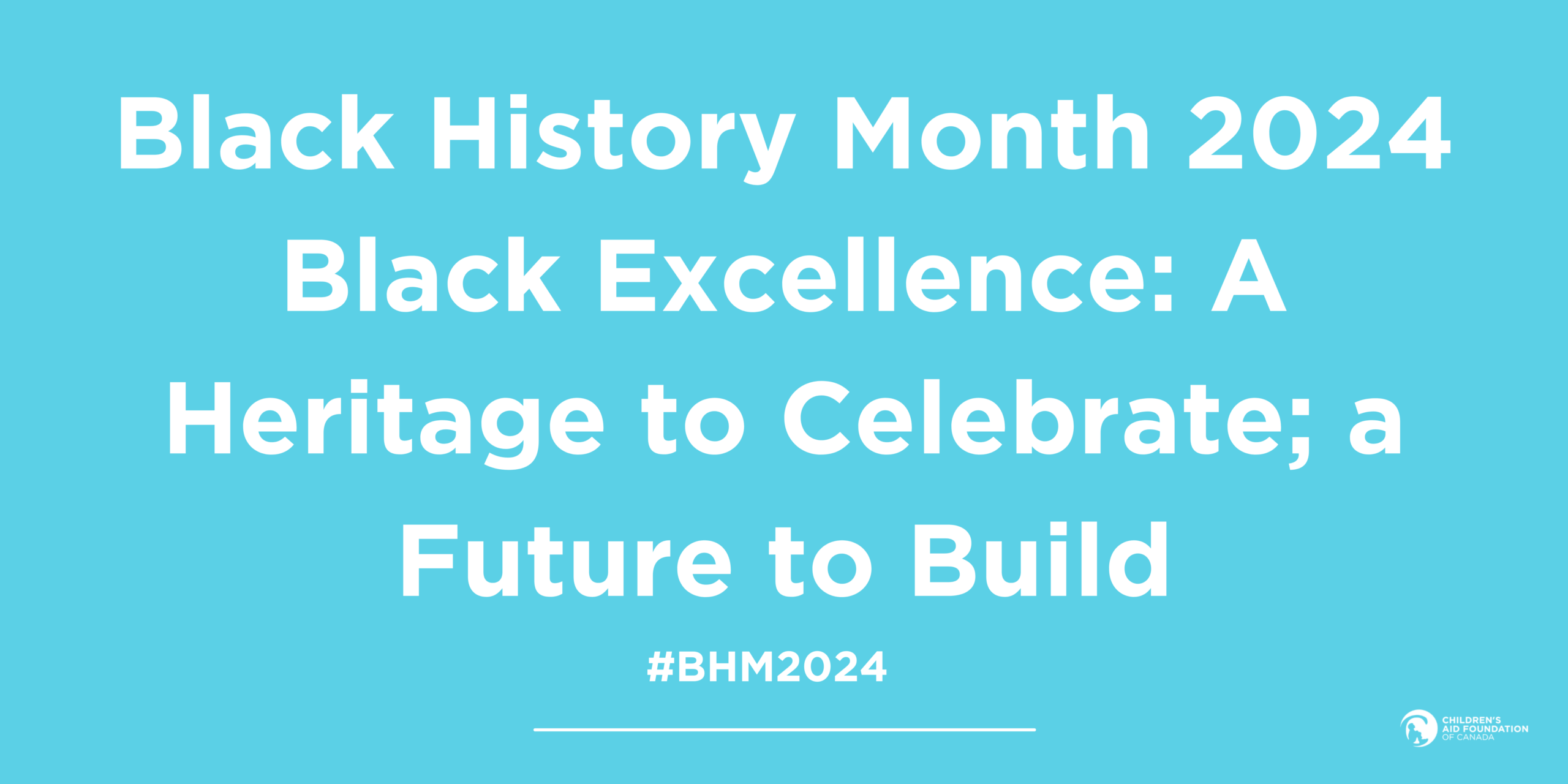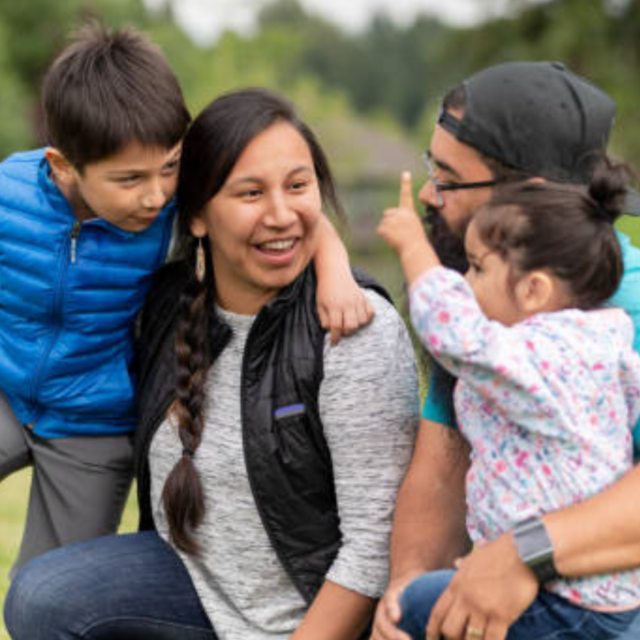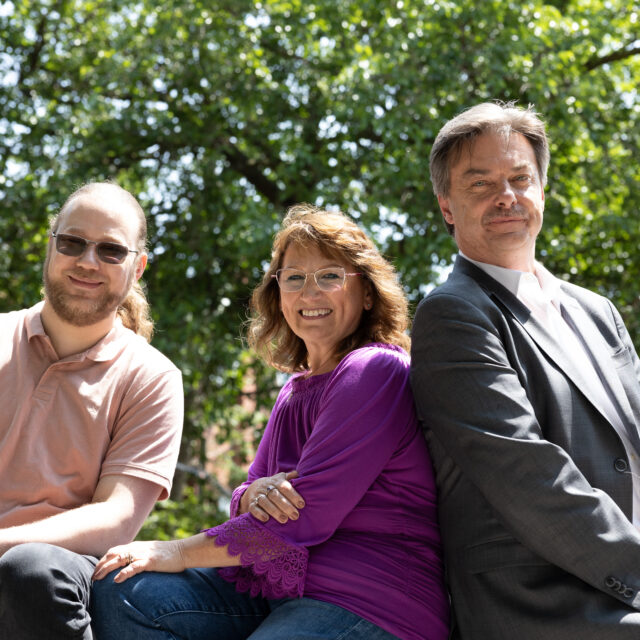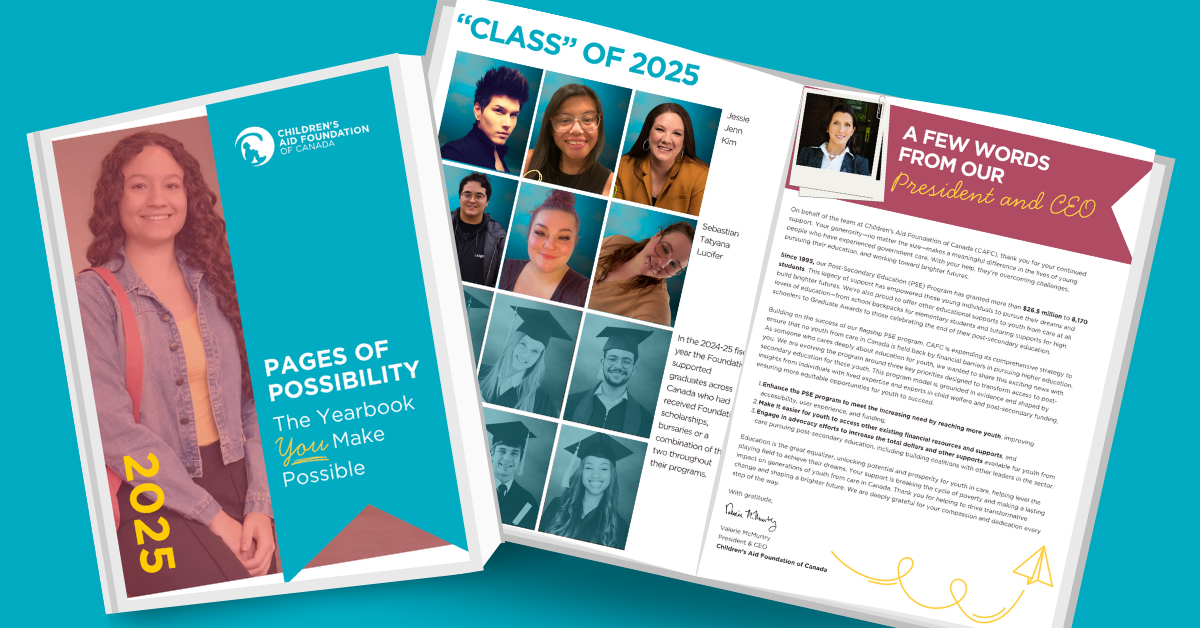Amendment: It is with great sadness that Children’s Aid Foundation of Canada acknowledges Alisha’s death in December 2024. With respect to her and her story, the Foundation has decided to maintain this article on our website in tribute to her inspiring words and journey. Alisha was a former member of our Young People’s Advisory Council (YPAC) and served as a youth ambassador for the Foundation. Alisha demonstrated remarkable passion and commitment to advocating for children and youth in care. She was an inspiring voice for change and a source of motivation for everyone who had the privilege to work alongside her. We are deeply saddened by this senseless loss. Our condolences to Alisha’s friends and family.
As we celebrate Black History Month and this year’s theme “Black Excellence: A Heritage to Celebrate; a Future to Build,” we’re sharing stories from former youth in care, and highlighting Black-focused programs and ongoing efforts to create a more equitable future for Black and Black-Biracial youth involved in the child welfare system.
By the Numbers
Black children and youth are significantly overrepresented in the child welfare system for a myriad of reasons including systemic racism, poverty and intergenerational trauma. Data from the Children’s Aid Society of Toronto shows that African-Caribbean Canadians are overrepresented in care at five times their representation in the population. African-Caribbean Canadians represent 41% of children and youth in care, despite making up only 8% of the population in Toronto. In Ontario, Black children make up just 7% of the overall child population yet represent 13.9% of children living in government care.
In 2020, Children’s Aid Foundation of Canada made it a strategic priority to address this overrepresentation. Together, alongside partners, allies, donors and advocates, we’re aiming to reduce the number of Black children and youth entering care, increase high school graduation rates and help youth transitioning out of care live meaningful, independent lives.
Alisha’s Story: The Myth of Monolithic Black Identities
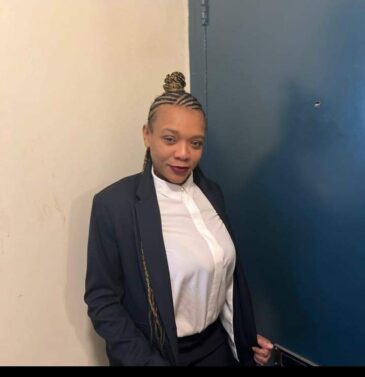
Alisha joined the Foundation’s Young People’s Advisory Council (YPAC) in 2016. A former youth in care, Alisha received scholarships and funding from the Foundation to attend school and was a mentor in the CHEERS program. She now works as a child welfare navigator at Delta Family Resources Centre, working tirelessly to help families, children and youth in need.
When Alisha was seven, she and her three younger brothers were placed in foster care. Split up from her brothers, Alisha was placed with a pastor and his wife, devout Christians who expected Alisha to also adhere to their faith. Forced to attend church every Sunday and forbidden from celebrating events like Halloween, Alisha often lashed out.
“Being apprehended at such a young age is already a traumatic experience. You’re taken away from your home and placed in a completely new environment with strangers. I guess they figured that since this family was also part of the Black community, it would be a good fit. But there’s so much more to my identity. I am Black-Biracial so my identity wasn’t just Black. And I wasn’t raised in a Christian or religious home. So, it was a big change in my environment and what I had grown up with.”
Over the next few years, Alisha would be placed in several more foster homes. From the age of seven, she regularly attended anger management courses and sought therapy.
“I’ve been in counselling from a very young age, but it always seemed to just be more about dealing with the anger and not really addressing why I was so angry to begin with, you know? I mean, no one seemed to be looking at why a seven-year-old would have so much anger.”
At the age of 12, she was placed in a home with foster parents who had training in how to navigate experiences with Biracial children.
“That turned out to be the best placement I ever had. My [biological] mother is Biracial, and my father is Black but I was raised by a lot of my Caucasian and Biracial family members, so my earlier years were very Canadianized. In foster care, I found it difficult to adjust to being in settings that I wasn’t used to. Back then, the system didn’t really represent a lot of people who looked like me or had my experiences.”
As she got older, Alisha became involved with Children’s Aid Foundation of Canada, eventually becoming a founding member of the Foundation’s Young People’s Advisory Council (YPAC). Through the Foundation, she learned about CHEERS – Creating Hope and Ensuring Excellent Roads to Success. Founded by one of the Foundation’s youth community members, CHEERS is a mentorship program that helps African-Caribbean Canadian youth transitioning out of care develop meaningful relationships outside of the child welfare system.
“Being a part of YPAC and working with the Foundation helped me meet so many people who understood what I had gone through. And at CHEERS I met other young people who had similar experiences as me – it was the first time I felt like I had something to give back to my Black community. Programs like CHEERS can be so helpful for young people who might feel disenfranchised.”
Alisha’s experiences as a former youth in care combined with her work as a mentor for CHEERS led her to realize she wanted to work within the child welfare system and guide children and young people through the system she is all too familiar with. Today, she is a child welfare navigator, using her past experiences to advocate for a deeper understanding of the nuances within Black communities.
“I think it’s so important to make sure that every child is placed according to their cultural background and upbringing. But it’s also important to provide training to foster parents so they can be better aware of specific needs. There’s no single definition of what it means to be Black and everyone has their own sense of identity. I want the system to be better attuned to the needs of the people they serve.”
Black History Month and Beyond
Throughout February and beyond, the Foundation will continue to feature the unique perspectives and experiences of Black youth. Stay tuned to our blog and social media channels to hear from these former youth in care:
- Troy Elleston – Troy is a Youth Advocate, STEM Educator, facilitator and mentor currently working in the financial technology industry.
- Keziah Oduro – Keziah is currently a student at the University of Ottawa where she is studying political science. She is passionate about policy-making as it relates to social justice and hopes to work toward furthering Canadian laws and policies to create a more equitable society.
- Favour Onosemuode – Favour is currently studying criminology at Douglas College. After graduation, she plans on attending law school to be a human rights lawyer.
